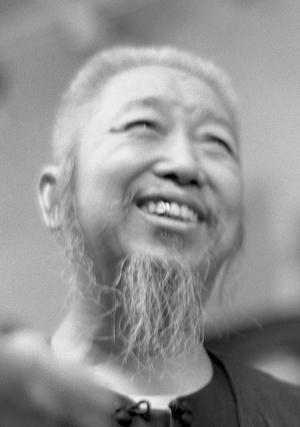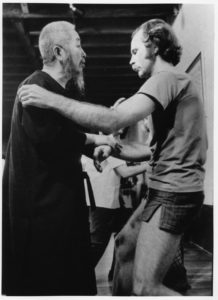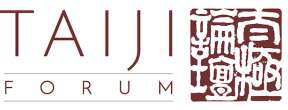Grandmasters, Big Sisters and Elder Brothers

As Taijiquan in the Cheng Man Ching tradition has gone beyond the traditional system of Baishi and formal acceptance into the “family” or the monastic community as a Tudi or disciple back in the 1960s, the honorable naming of elder teachers and students follows a mixed system.
One logical line goes from Master to Grandmaster to Greatgrandmaster. These titles capture the direct (and historical) connection between the student, the teacher and the teacher’s teacher. They thereby depict an aspect of teaching which in traditional lines is referred to as “line of transmission” or “line of handing down the knowledge”. In modern approaches it stands for the virtual line back into the past; in traditional family terms it would be the (grandfather) – father – son relation.
The second logical line develops along the line of brothers and sisters. It captures the aspect of – indirect – “familial” responsibility of students towards fellow students and is thus even less connected with hierarchy than the aforementioned student-teacher relation.
Grandmaster – The Master’s teacher
To be a Grandmaster can be described as a practical consequence of teaching. – As an advanced student of a master cannot technically be called “Master” by his/her own students as long as his/her teacher is also called Master, the long teaching Master may be persuaded to call himself Grandmaster. This in turn makes his or her own teacher Greatgrandmaster, in the case of Cheng Man Ching even posthumous, as originally he had been teaching the now Grandmaster(s). At the same time, this also illustrates a certain formality of this sort of titles, as clearly the skill of the long deceased has not further increased, while the influence of his teaching and the honor of his name may have – depending on the view of the onlooker.
“Big Sisters” and “Little Brothers” – Recognition and Responsibility among the students

In a bigger community, in which elder and younger students of the same (Grand)master study side by side in schools or at workshops, the honorable title of a “Big Sister” or a “Big Brother” may be used to indicate respect for certain elder students because of their long devotion to the art.
First of all, this can be interpreted as recognition of the dedicated practice of the so-named individual. As a rule, these students have been training under the same Master for some decades and reached a level of skill which makes him or her a natural point of reference for other students of the same art. The Big Siblings thus might be asked for advice or teaching by other students even though those might themselves already be direct students of other advanced representatives of the system.
Secondly, the naming of Big (and Little) Sisters and Brothers can also be seen as double allusion to the traditional Confucian family system and to the Chinese tradition to informally (and sometimes also affectionately) call family members not with their birth name but with their position in terms of relation and age. Thus, the “Elder Brother” or the “Elder Sister” share a place of respect – but also of responsibility for the development of the art and the (Taiji) family. This means they would also have to take into consideration the well-being of their “smaller siblings” when acting in the field of Taijiquan. This may especially be the case when the “father of the family” – in this case the old teacher, male or female, of the whole group – is no longer actively teaching.
Being a Grandmaster and a Big Sister or a Big Brother may coincide, but not necessarily so.
The ultimate meaning of being a Grandmaster
The general rule – and the modern interpretation – of all these honorary titles is that one may call oneself by the honorary title if one has been called so by others and that one should refrain from calling somebody by a certain honorary title if this is rejected by the so addressed.
In this context, any interpretation that a Grandmaster is somehow a Supermaster to all practitioners of Taijiquan or that the teachings of a Grandmaster are of universal significance cannot be thought of. In the end, being a Grandmaster, a Master or an Elder Student – or even virtuously refraining from naming oneself so to subtly underline one’s own modesty – does not make any difference, not to the Taiji family and even less to the world. In the words of Cheng Man Ching: You are what you are.
See also: Cheng Man Ching’s way of teaching (4): On being a master
Author: Taiji Forum
Images: Ken van Sickle
